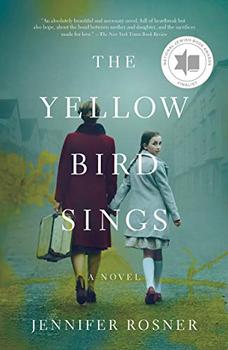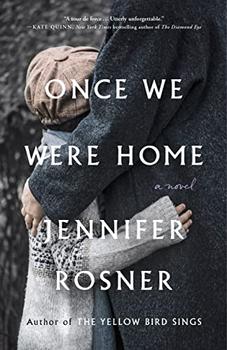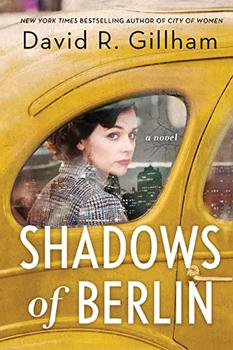Summary | Excerpt | Reading Guide | Reviews | Beyond the book | Read-Alikes | Genres & Themes | Author Bio

A Novel
by Jennifer RosnerIn Poland, as World War II rages, a mother hides with her young daughter, a musical prodigy whose slightest sound may cost them their lives.
As Nazi soldiers round up the Jews in their town, Róza and her 5-year-old daughter, Shira, flee, seeking shelter in a neighbor's barn. Hidden in the hayloft day and night, Shira struggles to stay still and quiet, as music pulses through her and the farmyard outside beckons. To soothe her daughter and pass the time, Róza tells her a story about a girl in an enchanted garden:
The girl is forbidden from making a sound, so the yellow bird sings. He sings whatever the girl composes in her head: high-pitched trills of piccolo; low-throated growls of contrabassoon. Music helps the flowers bloom.
In this make-believe world, Róza can shield Shira from the horrors that surround them. But the day comes when their haven is no longer safe, and Róza must make an impossible choice: whether to keep Shira by her side or give her the chance to survive apart.
Inspired by the true stories of Jewish children hidden during World War II, Jennifer Rosner's debut is a breathtaking novel about the unbreakable bond between a mother and a daughter. Beautiful and riveting, The Yellow Bird Sings is a testament to the triumph of hope—a whispered story, a bird's song—in even the darkest of times.
Although the story revolves around a horrific time in history, it mainly centers on the beautiful relationship between a mother and her daughter. The story captivated me. Through difficult situations, separation and heartbreak, it remained sweet, hopeful and powerful (Sally D). The story tells of the bond between mother and child, their love of music, and their efforts to survive during the most dire of circumstances. In some ways, I found it reminiscent of The Pianist (Shelley C)...continued
Full Review
 (641 words)
(641 words)
(Reviewed by First Impressions Reviewers).
 In Jennifer Rosner's The Yellow Bird Sings, which takes place in Poland during WWII, Róza and her daughter Shira are forced to hide from the Nazis. After already losing other family members, Róza must decide whether or not to send Shira into hiding on her own in order to protect her. While members of Jewish families were often separated forcibly from one another after being arrested by German forces during this time, many parents also felt compelled to separate themselves from their children in order to better the children's chances of survival.
In Jennifer Rosner's The Yellow Bird Sings, which takes place in Poland during WWII, Róza and her daughter Shira are forced to hide from the Nazis. After already losing other family members, Róza must decide whether or not to send Shira into hiding on her own in order to protect her. While members of Jewish families were often separated forcibly from one another after being arrested by German forces during this time, many parents also felt compelled to separate themselves from their children in order to better the children's chances of survival.
In some cases, separations would occur on the spur of the moment when a family was in imminent danger of being caught in a raid or roundup. Children whose parents were taken into ...

If you liked The Yellow Bird Sings, try these:

by Jennifer Rosner
Published 2024
From Jennifer Rosner, National Jewish Book Award Finalist and author of The Yellow Bird Sings, comes a novel based on the true stories of children stolen in the wake of World War II.

by David R. Gillham
Published 2023
A captivating novel of a Berlin girl on the run from the guilt of her past and the boy from Brooklyn who loves her.
Harvard is the storehouse of knowledge because the freshmen bring so much in and the graduates take so little out.
Click Here to find out who said this, as well as discovering other famous literary quotes!